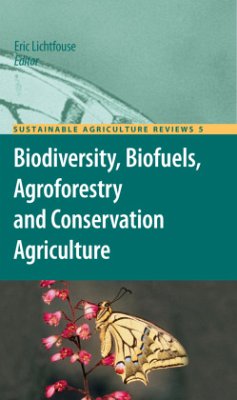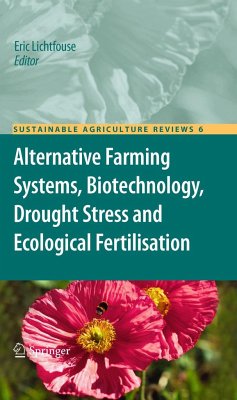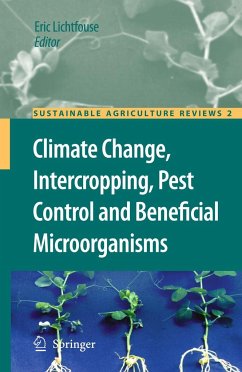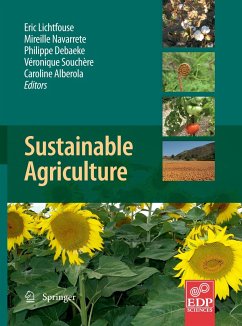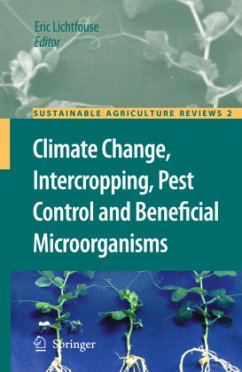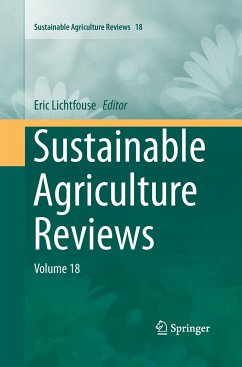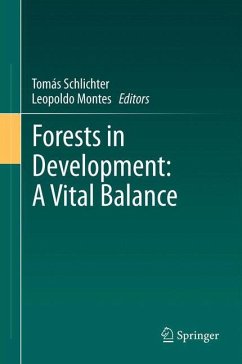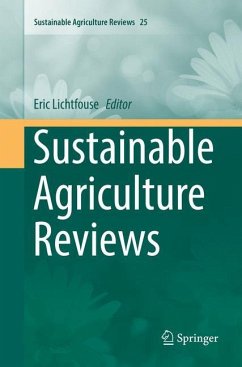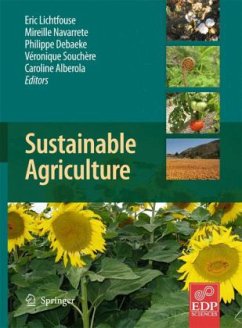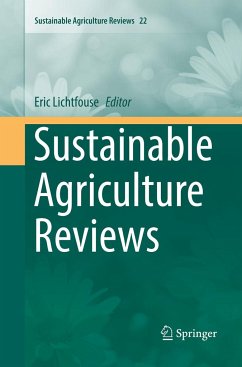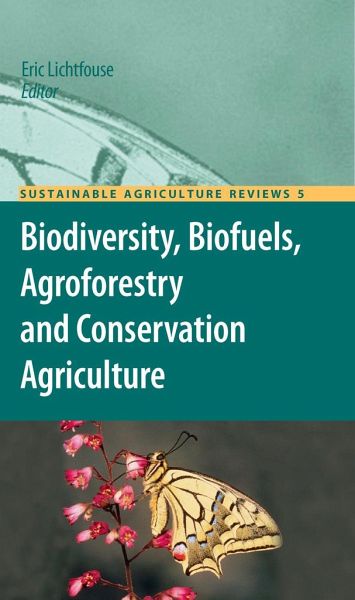
Biodiversity, Biofuels, Agroforestry and Conservation Agriculture

PAYBACK Punkte
57 °P sammeln!
Sustainable agriculture is a rapidly growing field aiming at producing food and energy in a sustainable way for our children. This discipline addresses current issues such as climate change, increasing food and fuel prices, starvation, obesity, water pollution, soil erosion, fertility loss, pest control and biodiversity depletion. Novel solutions are proposed based on integrated knowledge from agronomy, soil science, molecular biology, chemistry, toxicology, ecology, economy, philosophy and social sciences. As actual society issues are now intertwined, sustainable agriculture will bring soluti...
Sustainable agriculture is a rapidly growing field aiming at producing food and energy in a sustainable way for our children. This discipline addresses current issues such as climate change, increasing food and fuel prices, starvation, obesity, water pollution, soil erosion, fertility loss, pest control and biodiversity depletion. Novel solutions are proposed based on integrated knowledge from agronomy, soil science, molecular biology, chemistry, toxicology, ecology, economy, philosophy and social sciences. As actual society issues are now intertwined, sustainable agriculture will bring solutions to build a safer world. This book series analyzes current agricultural issues, and proposes alternative solutions, consequently helping all scientists, decision-makers, professors, farmers and politicians wishing to build safe agriculture, energy and food systems for future generations.





